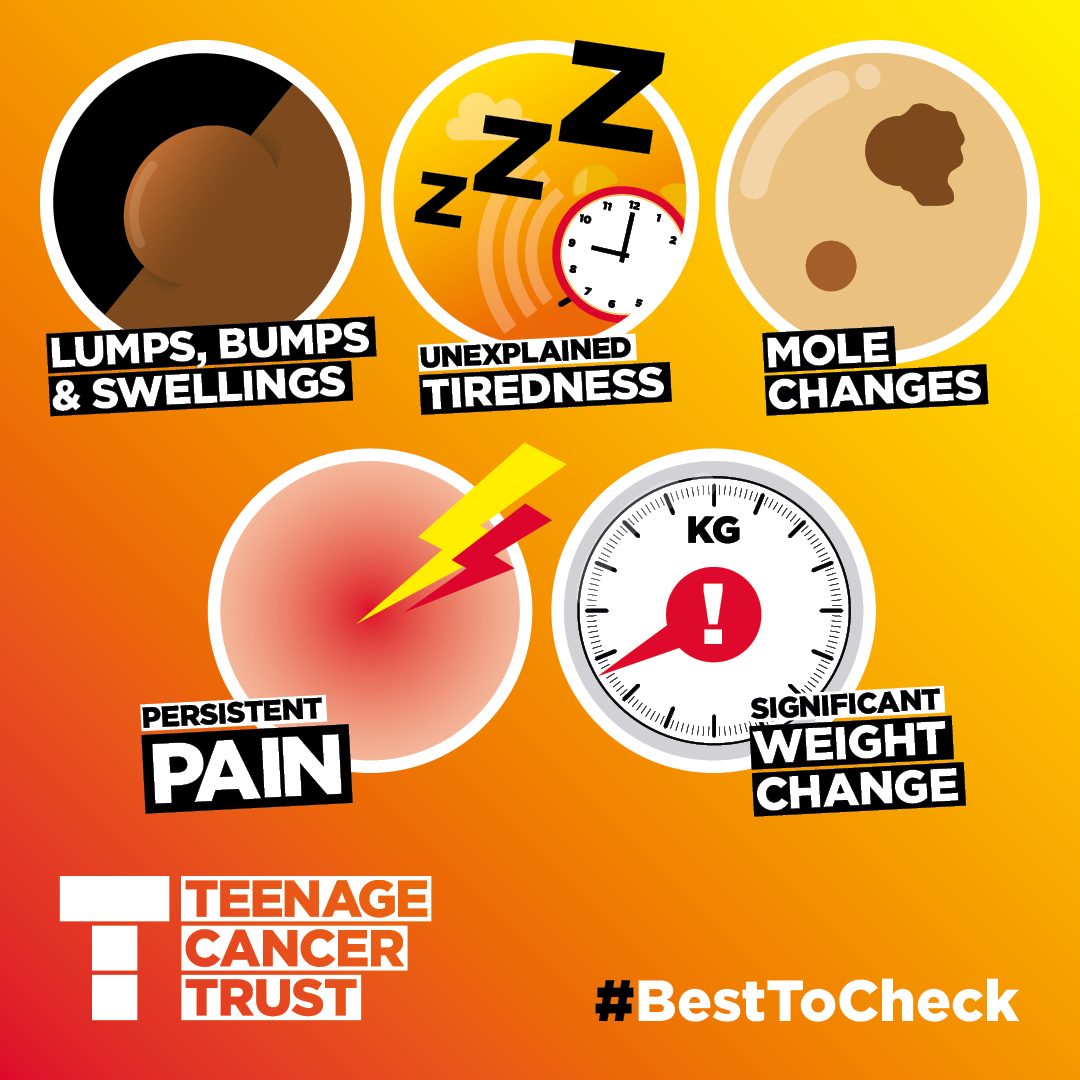
Cancer complications timebomb as teens go undiagnosed
The Child of Wales Awards is pleased to be supporting the Teenage Cancer Trust, which is running an important campaign at the moment as youngsters with cancer symptoms are deterred from seeing their doctor amid Coronavirus response (#BestToCheck campaign).
Teenage Cancer Trust says it has learnt that in some parts of the UK, for the first time, there have been no newly diagnosed cases of cancer in teenagers and young adults as the impact of the coronavirus hits NHS services. In some places there has been a 75% fall in cancer referrals.
Even before coronavirus, some young people with suspected cancer symptoms had to visit their GPs multiple times before they were referred to a specialist. This has led to the charity launching its #BestToCheck campaign.
The campaign aims to remind young people of the common signs and symptoms of cancer, and despite the nation being on lockdown due to Coronavirus, urge them not to sit on symptoms and contact their GP.
The charity notes that cancer is the leading cause of death from disease in 13-24 year olds but with early diagnosis, lives can be saved and the risk of developing other complications is reduced.
So Teenage Cancer Trust is urging all young people to look out for the following symptoms:
- lumps, bumps or swellings
- unexplained tiredness
- mole changes
- persistent pain
- significant weight change.
Dr Louise Soanes, Direct of Services at Teenage Cancer Trust said: “Every day around seven young people aged 13-24 are diagnosed with cancer in the UK. We know that across all age groups, cancer referrals have fallen by as much as 75% during the Coronavirus pandemic, and with the anecdotal evidence we’ve gathered, we fear that many 13-24 year olds will be deterred from contacting their GP, not wanting to add pressure to the health service.
“We know that cancer can be harder to treat if it’s not diagnosed early, but young people can be slower to visit their GP with symptoms. It can also take longer for them to be referred to a specialist. That’s why putting off an appointment will make things harder for the NHS in the long term.
“My message to all teenagers and young adults is simple. Familiarise yourself with the symptoms of cancer and if you are worried, contact your GP. Don’t ignore any changes to your body that you are seeing; it can be worrying, but it’s important to get anything checked out. The health service is still very much open and wants to support you.”
Find out more about #BestToCheck: www.teenagecancertrust.org/signs


